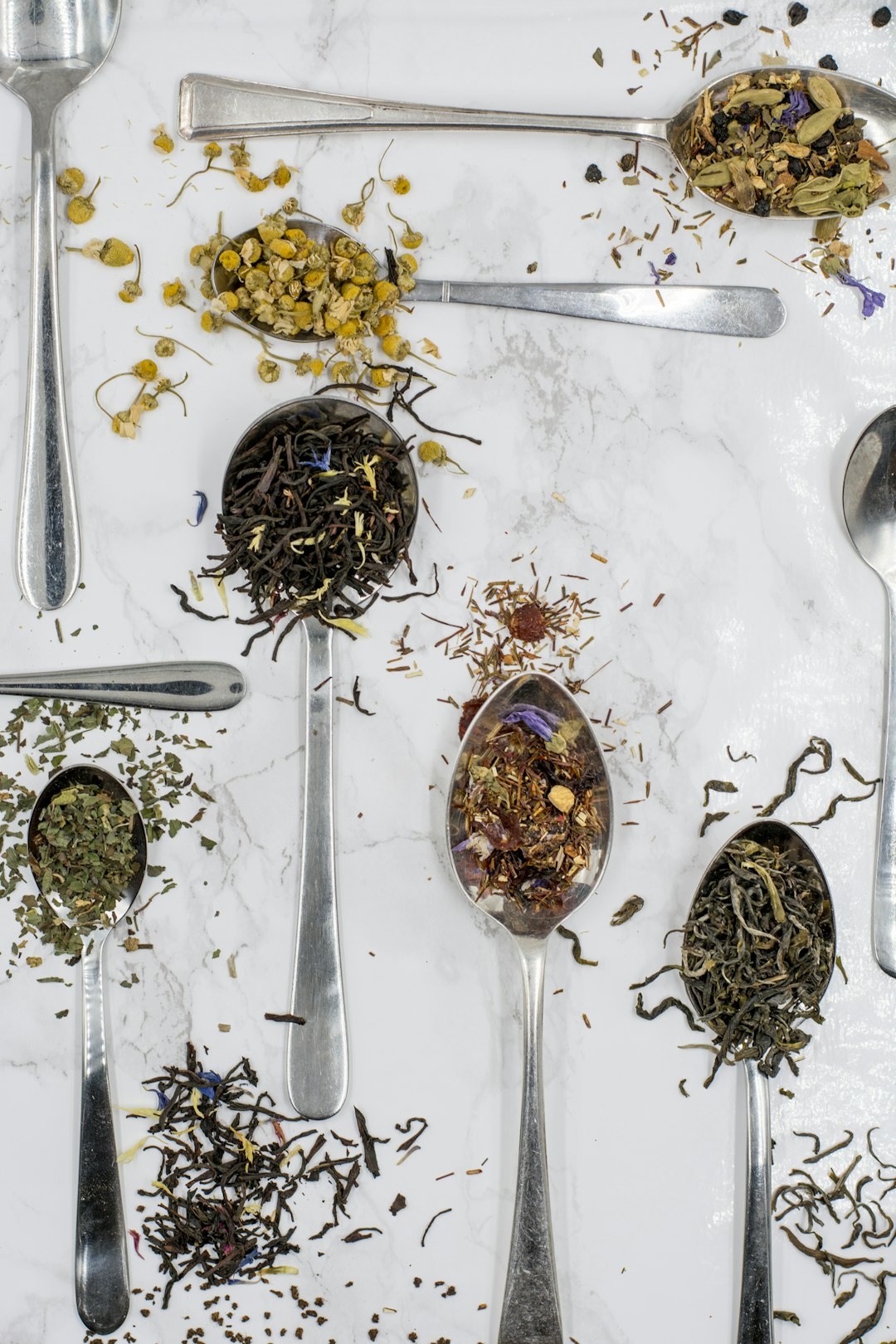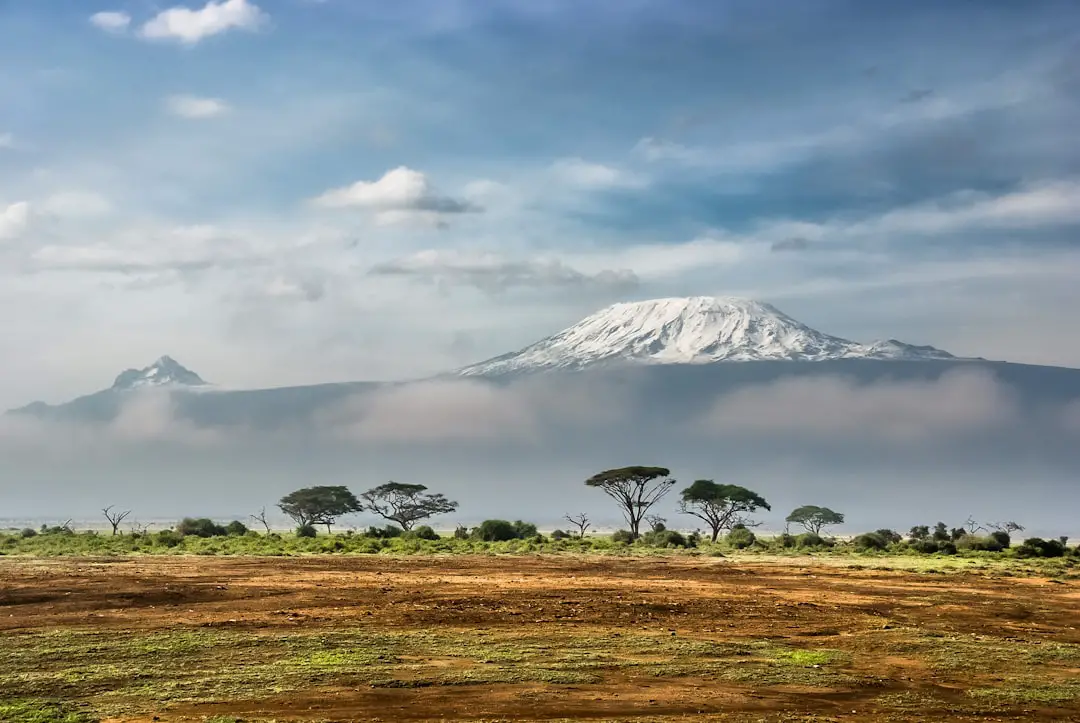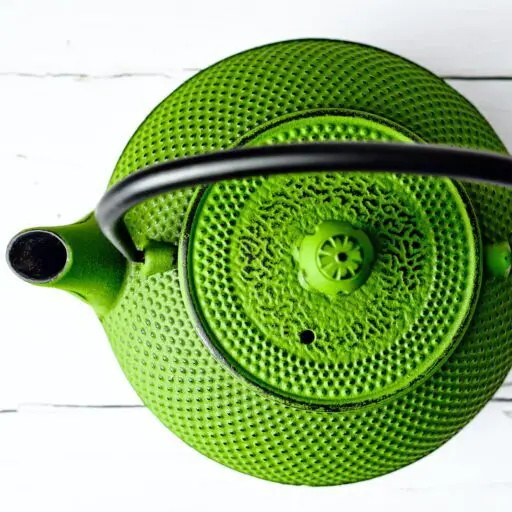Support our educational content for free when you purchase through links on our site. Learn more
Discover the Top 10 Tea Producing Countries in Africa: Surprising Flavors Await! 🌍☕

Welcome to the vibrant world of African tea! In our exploration of the top 10 tea producing countries in Africa [2024], you’ll discover that this continent is not just about coffee and cocoa; it boasts a rich tapestry of tea cultures and flavors that will tantalize your taste buds. Did you know that Kenya is not only the largest tea producer in Africa but also ranks third in the world? With its high-altitude tea estates and unique climate, it produces some of the most sought-after black teas globally.
But that’s just the tip of the iceberg! From the hidden gem of Malawi to the herbal delights of South Africa, each country offers a unique experience that reflects its local culture and traditions. So grab your favorite teacup, and let’s embark on this flavorful journey together! You might just find your new favorite brew along the way.
Key Takeaways
- Kenya leads Africa in tea production, known for its bold and rich black teas.
- Malawi offers unique, strong flavors, making it a favorite for blends.
- South Africa shines with its herbal teas, particularly rooibos, which are caffeine-free and packed with antioxidants.
- The tea industry significantly impacts the economies of these countries, providing employment and export revenue.
- Sustainability is increasingly important, with many producers adopting eco-friendly practices.
Ready to explore the world of African teas? 👉 Shop Kenyan Tea on: Amazon | Tea Brands Official and discover the diverse flavors that await you! 🍵
Table of Contents
- Quick Tips and Facts about African Tea Production
- A Journey Through the History of Tea in Africa
- Top 10 Tea Producing Countries in Africa
- 1. Kenya: The King of African Tea
- 2. Malawi: The Hidden Gem
- 3. South Africa: Beyond Rooibos
- 4. Tanzania: The Land of Spice and Tea
- 5. Uganda: The Rising Star
- 6. Ethiopia: The Birthplace of Coffee and Tea
- 7. Zimbabwe: A Diverse Tea Culture
- 8. Cameroon: The Newcomer on the Block
- 9. Madagascar: The Vanilla and Tea Paradise
- 10. Ivory Coast: The Emerging Player
- The Economic Impact of Tea Production in Africa
- Sustainability in African Tea Farming
- How to Choose the Best African Teas
- Cultural Significance of Tea in African Societies
- Events and Festivals Celebrating African Tea
- Core Topics Related to African Tea Production
- Conclusion
- Recommended Links for Tea Lovers
- FAQ about African Tea Production
- Reference Links for Further Reading
Quick Tips and Facts about African Tea Production ☕🌍
- Africa is the world’s second-largest continent, with a diverse range of climates and terrains, making it ideal for growing a variety of tea. 🍵
- Did you know? Which Country is Famous for Tea? Discover the Top 10 Nations That Brew the Best! 2024. It might surprise you!
- Kenya is the largest tea producer in Africa and the third largest globally, known for its black tea. 🇰🇪
- Malawi is renowned for its strong, dark red tea, often used in blends. 🇲🇼
- South Africa is famous for its herbal teas, particularly rooibos and honeybush, which are naturally caffeine-free. 🇿🇦
- African tea production plays a significant role in the economies of many countries, providing employment and export revenue. 📈
A Journey Through the History of Tea in Africa ⏳

- Unlike Asia, where tea originated, tea cultivation in Africa is a relatively recent development.
- It was introduced by European colonists in the 19th and 20th centuries.
- Kenya’s tea industry, for instance, began in the early 1900s with British settlers establishing large tea estates.
- In South Africa, the indigenous Khoisan people have been consuming rooibos tea for centuries, long before its commercialization.
- Over the decades, African countries have developed their own unique tea cultures and traditions.
Top 10 Tea Producing Countries in Africa 🏆
1. Kenya: The King of African Tea 👑
- Kenya stands tall as the leading tea producer in Africa and the third largest globally.
- The country’s high altitude, tropical climate, and fertile volcanic soils create the perfect environment for growing tea.
- Kenyan tea is renowned for its bright, brisk flavor and rich aroma, making it a staple in black tea blends worldwide.
2. Malawi: The Hidden Gem 💎
- Malawi may be a small country, but it’s a tea powerhouse, ranking as the second-largest tea producer in Africa.
- Malawian tea is characterized by its strong, full-bodied flavor and distinctive dark red hue.
- It’s often used in blends to add strength and color, but single-origin Malawian teas are gaining popularity among tea connoisseurs.
3. South Africa: Beyond Rooibos 🇿🇦
- While South Africa is best known for its herbal infusions like rooibos and honeybush, it also produces traditional tea.
- The tea-growing regions are primarily located in the Eastern Cape and KwaZulu-Natal provinces.
- South African black tea is typically strong and full-bodied, similar in profile to Kenyan tea.
4. Tanzania: The Land of Spice and Tea 🇹🇿
- Tanzania, Kenya’s neighbor, shares a similar climate and terrain, making it ideal for tea cultivation.
- Tanzanian tea is known for its bright, brisk flavor and rich aroma, often compared to Kenyan tea.
- The country also produces specialty teas, including organic and fair-trade varieties.
5. Uganda: The Rising Star 🌟
- Uganda is rapidly emerging as a major player in the African tea industry.
- The country’s fertile soils and favorable climate allow for the production of high-quality tea.
- Ugandan tea is known for its rich, malty flavor and is gaining recognition in the global market.
6. Ethiopia: The Birthplace of Coffee and Tea 🇪🇹
- While Ethiopia is globally renowned as the birthplace of coffee, it also has a long history of tea cultivation.
- Ethiopian tea is typically grown in the highlands and is known for its delicate flavor and floral aroma.
- The country is also a significant producer of herbal teas, including chamomile and mint.
7. Zimbabwe: A Diverse Tea Culture 🇿🇼
- Zimbabwe’s tea industry dates back to the early 20th century, and the country produces a variety of tea types.
- Zimbabwean tea is known for its quality and is exported to various countries worldwide.
- The country is also home to small-scale tea farmers who produce unique and flavorful teas.
8. Cameroon: The Newcomer on the Block 🇨🇲
- Cameroon is a relatively new entrant to the African tea scene, but it’s quickly gaining traction.
- The country’s diverse climate and fertile soils are suitable for growing different tea varieties.
- Cameroonian tea is known for its unique flavor profiles and is starting to make its mark in the international market.
9. Madagascar: The Vanilla and Tea Paradise 🇲🇬
- Madagascar, an island nation off the coast of East Africa, is famous for its vanilla production but also grows tea.
- The tea industry in Madagascar is still developing, but the country has the potential to produce high-quality teas.
- Madagascar tea is known for its delicate flavor and unique character, influenced by the island’s terroir.
10. Ivory Coast: The Emerging Player 🇨🇮
- Ivory Coast, the largest cocoa producer globally, is also venturing into tea production.
- The country’s tropical climate and fertile land make it suitable for growing tea.
- While still in its early stages, the Ivorian tea industry is poised for growth and is attracting international investment.
The Economic Impact of Tea Production in Africa 💰
- Tea production is a vital economic lifeline for many African countries, particularly in East and Southern Africa.
- It provides employment opportunities for millions of people, from tea pluckers to factory workers and exporters.
- Tea exports generate significant foreign exchange earnings, contributing to national economies and supporting rural livelihoods.
Sustainability in African Tea Farming 🌱
- Sustainability is a growing concern in the African tea industry, with a focus on environmental protection, social responsibility, and economic viability.
- Many tea estates are implementing sustainable farming practices, such as organic agriculture, water conservation, and fair labor practices.
- Certifications like Rainforest Alliance and Fair Trade are becoming increasingly important, ensuring ethical and sustainable tea production.
How to Choose the Best African Teas 🤔
- Consider your taste preferences: Do you prefer strong and bold flavors or something more delicate and nuanced?
- Explore different origins: Each African country has its own unique tea characteristics, so be adventurous and try teas from various regions.
- Look for quality certifications: Certifications like Rainforest Alliance and Fair Trade indicate sustainable and ethical sourcing practices.
- Experiment with brewing methods: Different teas may require different water temperatures and steeping times for optimal flavor extraction.
Cultural Significance of Tea in African Societies 🍵👨👩👧👦
- While tea drinking might not be as deeply ingrained in African cultures as in some Asian countries, it has become an integral part of daily life.
- In many African societies, tea is a social beverage, often shared with family and friends, symbolizing hospitality and togetherness.
- From bustling city cafes to rural villages, tea drinking is a common sight, bridging cultural differences and bringing people together.
Events and Festivals Celebrating African Tea 🎉
- While large-scale tea festivals are more common in Asia, some African countries host events celebrating their tea heritage.
- These events showcase the diversity of African teas, promote local producers, and educate consumers about tea culture.
Core Topics Related to African Tea Production 🌿
- Climate Change and Tea Production: How climate change is impacting tea growing regions in Africa and what measures are being taken to mitigate the effects.
- Value Addition in the Tea Industry: Exploring ways to add value to African tea, such as specialty tea production, tea tourism, and product diversification.
- The Role of Technology in Tea Farming: How technology is being used to improve tea yields, quality, and sustainability in African tea production.
Conclusion 🎉

In wrapping up our delightful journey through the top 10 tea producing countries in Africa, it’s clear that this continent is not just a newcomer in the tea world but a vibrant player with a rich tapestry of flavors and traditions. From Kenya’s robust black teas to South Africa’s unique rooibos, each country offers something special.
Positives:
- Diversity of Flavors: African teas range from strong black teas to soothing herbal blends, catering to various tastes.
- Economic Impact: Tea production supports millions of livelihoods across the continent, contributing significantly to local economies.
- Sustainability Initiatives: Many producers are adopting eco-friendly practices, ensuring a brighter future for both the industry and the environment.
Negatives:
- Emerging Industry: Some regions still face challenges in production quality and market recognition compared to established tea giants like China and India.
- Climate Vulnerability: The tea industry in Africa is susceptible to climate change, which poses risks to production and quality.
Overall, we confidently recommend exploring African teas. Whether you’re a seasoned tea lover or just starting your journey, there’s a wealth of flavors waiting for you to sip and savor! 🌍✨
Recommended Links 🛍️
- 👉 Shop Kenyan Tea on: Amazon | Tea Brands Official
- 👉 Shop Malawian Tea on: Amazon | Tea Brands Official
- 👉 Shop Rooibos Tea on: Amazon | Tea Brands Official
- Books on Tea: The Tea Book | Tea: History, Terroirs, Varieties
FAQ about African Tea Production ❓

Which country is the largest producer of tea in Africa? 🇰🇪
Kenya holds the title as the largest producer of tea in Africa, contributing significantly to both local consumption and global exports. The country produced approximately 305,000 metric tonnes in recent years, making it a key player on the world stage.
Which African country has the best tea? 🤔
While “best” can be subjective and depends on personal taste, many tea enthusiasts rave about Kenyan tea for its strong, bold flavors and high quality. However, Malawi and South Africa also have unique offerings that are worth exploring.
What are the top 10 tea producing countries in the world? 🌍
The top 10 tea producing countries globally include:
- China
- India
- Kenya
- Sri Lanka
- Turkey
- Indonesia
- Vietnam
- Japan
- Iran
- Argentina
For a detailed breakdown, check out GeeksforGeeks.
Which country has the best tea? ☕
This is a hotly debated topic! Many argue that China and India produce the finest teas due to their long history and diverse varieties. However, Kenya is quickly gaining a reputation for high-quality black teas, while South Africa shines in the herbal tea category.
What are the health benefits of African teas? 🌱
African teas, particularly rooibos and honeybush, are known for their antioxidant properties and are naturally caffeine-free. They can aid in digestion, improve heart health, and promote relaxation. For more information, visit our Health Benefits of Tea section.
How is tea production impacting local communities in Africa? 🌍
Tea production plays a crucial role in supporting local economies, providing employment opportunities, and fostering community development. Many tea estates invest in local infrastructure, education, and health services, positively impacting the lives of those involved in the industry.

